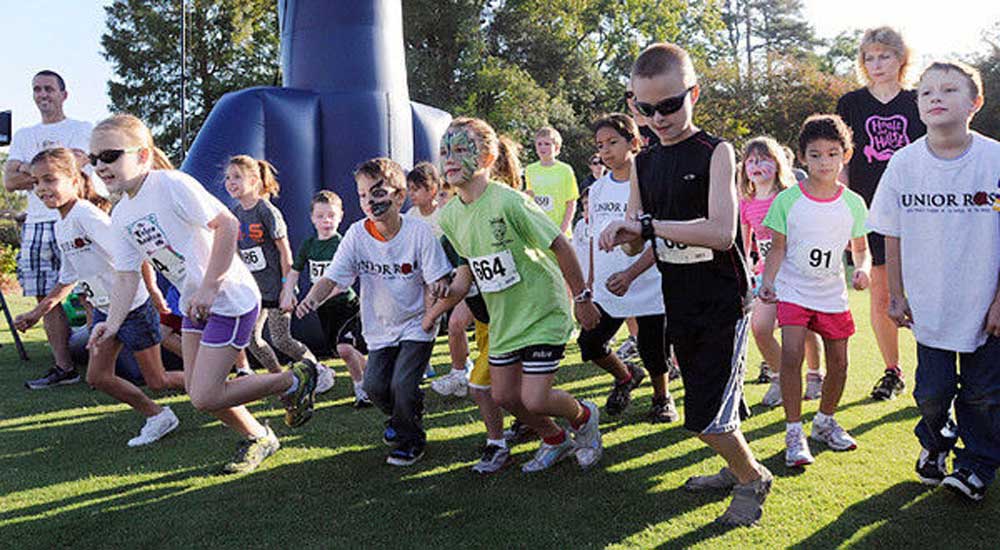Keeping kids active all summer long
Published 4:54 pm Saturday, June 1, 2013

- The over 7 kids start the Tyler Junior Rose Run at the Tyler Municipal Rolse Garden in October 2011. Herb Nygren Jr./Staff
BY COSHANDRA DILLARD
cdillard@tylerpaper.com
With schools dismissing for the summer, parents are trying to find things to keep their children safely occupied.
Keeping them healthy is also a concern, as 17 percent of American children ages 2 to 19 are obese now, triple that of 1980. Several studies, including one compiled by the National Summer Learning Association, have shown that children gain weight three times faster during the summer months.
“It’s not something that most parents recognize,” said Dr. Valerie Smith, a pediatrician at St. Paul Children’s Clinic. “I think they feel that children are more active in the summer than in the school but the reality is that the schools have done a good job fulfilling requirements for P.E. and encouraging activity even in the classrooms. Parents may be idealizing their childhood summers, when they ran around and played until it was time to come in and eat. For most kids now, that’s not what summer is like.”
For some children, end of school means the end of organized activity such as sports teams. In addition, boredom makes it easy to graze on unhealthy snacks, watch television and play video games.
Dr. Smith said she encourages families to make a television schedule, in which children write down the shows they care about watching, but keep the TV off while those shows are not on. She said for the first week of summer, have them create a list of at least 20 things they enjoy doing indoors or outdoors, such as board games, puzzles or trips to the zoo.
“That way, when they are tempted to turn the TV on out of boredom, they have that list next to the remote,” she said.
It also shields children from the numerous commercials for sugary and unhealthy snacks.
Dr. Smith said for older children who may be home alone, it is too easy to reach for unhealthy snacks because healthy food is not readily available. She points out the importance of prepping or freezing fruits, vegetables and meals so they can be easy to eat. Leftover whole-wheat pancakes and meats are ideal for freezing and having on hand for an entire week. Snacks such as air-popped popcorn and burritos made with slow-cooker pinto beans are an alternative for microwaveable processed foods and snacks.
“The No. 1 thing that makes a difference is to not have the chips and candy and high sugar things available at home,” Dr. Smith said.
At XTC Fitness, they’ve developed a program that mixes nutrition education and exercise. The Healthy Child Program lasts for eight weeks and encourages children to develop healthy eating habits, rather than forcing them to like particular foods.
“It’s kind of a game,” said Colby Vantassel, general manager at XTC Fitness.
“It incentivizes the child to make good choices based on a point system. … Most kids and even some adults don’t realize when they’re making bad choices.”
For example, choosing fruit with a McDonald’s Happy Meal instead of cookies will earn children more points. During the program, weight and body mass index is taken at the beginning and upon completion.
Some organizations offer programs intended to prevent summertime weight gain, such as the YMCA and Glass Recreation Center, who have summer programs annually. At East Texas Medical Center, its Kids in Motion has also included physical activity with games and nutrition education.






